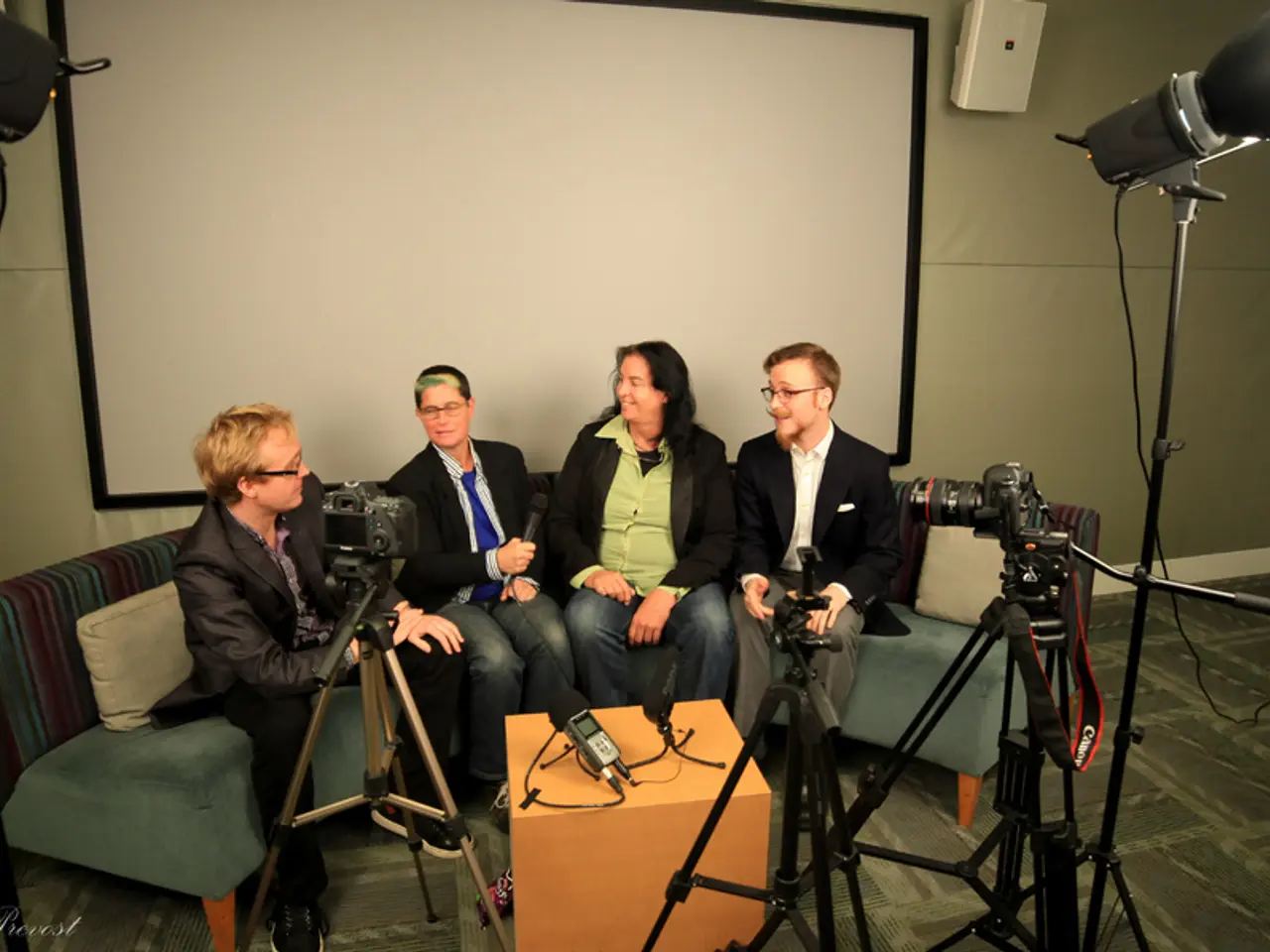Hidden Biases in Corporate World: Neuroscience-Based Approach to Eliminate Trillion-Dollar Losses
In the modern business world, making informed and effective decisions is crucial for success. A growing trend in leadership development is the use of neuroscience-based strategies to reduce unconscious bias and improve decision-making.
According to recent research, combining data awareness with brief mindfulness practices significantly enhances decision-making accuracy [1]. One example of this approach is Google's "Search Inside Yourself" program, which combines neuroscience-based mindfulness training with leadership development. The program reports significant improvements in emotional intelligence and decision-making quality [2].
Neuroscience-informed programs teach leaders to recognize their unconscious biases, which can distort judgment and lead to unfair or suboptimal decisions. By increasing awareness of these biases and practicing brain-friendly habits, such as mindfulness, emotional intelligence, and feedback mechanisms, leaders can mitigate bias effects on behavior and decision-making processes [3].
The use of structured frameworks like the i4 Neuroleader™ Methodology integrates neuroscience principles into leadership development and performance evaluation. This approach promotes accountability and brain-friendly habits that improve continuous innovation and strategic outcomes [4].
Neuroscience research on learning agility emphasizes enhancing leaders’ ability to adapt, learn from new experiences, and apply those lessons amid complex and rapidly changing environments. Neuroplasticity—the brain's capacity to rewire itself—allows leadership training to cultivate flexible thinking, better risk assessment, and improved social cognition, all contributing to higher-quality decision-making [5].
Moreover, these strategies can lead to tangible business benefits. McKinsey's research shows an exponential separation in financial performance between companies with gender diverse executive teams and those with less diversity [6]. In one case, an executive eliminated nearly two-thirds of his organization's hiring bias within eight months through neural transformation [7].
Further, mindfulness training can significantly reduce intergroup bias while increasing prosocial behaviors in workplace settings [8]. Daily mindfulness practice and cognitive restructuring protocols can train the brain to pause between stimulus and response [9]. The brain-based training guided by Anna Barnhill, CEO of AdvantEdge Leadership, produces measurable shifts in decision-making patterns [10].
In summary, neuroscience-based leadership development:
- Raises awareness of unconscious biases and their impact on judgment.
- Employs brain science techniques to regulate bias-driven responses.
- Builds leaders' cognitive adaptability and learning agility to improve decision quality under uncertainty.
- Embeds neuroscience frameworks like i4 Neuroleader™ into organizational culture to sustain bias reduction and innovation as strategic priorities.
This integrated approach drives fairer, more rational, and more innovative leadership decisions that benefit business performance, workforce morale, and organizational resilience [1][2][3][4][5].
However, it's important to note that real-time bias detection is also crucial. This can be achieved by monitoring hiring, promotion, and project assignment patterns. Real-time feedback systems can be implemented for continuous improvement backed by measurable neural change [11].
Moreover, the amygggala, a part of the brain, automatically categorizes people as "us" or "them", undermining inclusive leadership. An Implicit Association Test can establish baseline unconscious biases, while systematic perspective-taking exercises can expand empathy networks and enhance strategic thinking [12][13].
Unfortunately, employees who experience workplace bias withhold their innovative ideas. Neuroscience revolutionized our understanding of bias, revealing that prejudicial responses involve specific, measurable brain networks. Traditional diversity training programs show limited effectiveness because they fail to address the neurobiological roots of prejudicial thinking [14].
The global economy loses $8.9 trillion annually due to employee disengagement caused by unconscious bias, equivalent to 9% of global GDP [15]. Therefore, it's essential for businesses to adopt neuroscience-based leadership development strategies to foster more objective, inclusive, and effective decisions.
Read also:
- Increased Chikungunya infections in UK travelers prompt mosquito bite caution
- Kazakhstan's Deputy Prime Minister holds discussions on the prevailing circumstances in Almaty
- Researchers Create Implantable Gadget for Instant Inflammation Surveillance
- Undermining Authority in HHS: Actions by RFK Jr. Damage Expert Consensus





